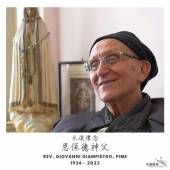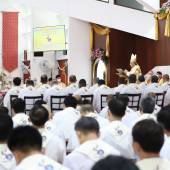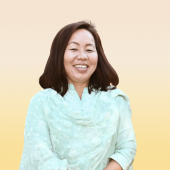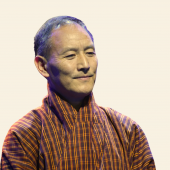Silsilah Dialogue Movement marks 40 years of service promoting peace and harmony in the Philippines

The Silsilah (human chain or connection) Dialogue Movement, an NGO dedicated to building interreligious dialogue between Christians and Muslims in Zamboanga province, on the southern island of Mindanao, completes 40 years of promoting peace, harmony, and hope this May.
'Dreaming Together'
Mindanao is a Muslim-majority South Island, the country's second-largest island, and has a population of more than 25 million. For decades, it has been the scene of violence between insurgent groups and government troops. Besides, the conflict between Muslims and Christians has taken a toll in the past in Mindanao, a region where, unlike other parts of the country, Christians are the minority.
The man behind the Silsilah Dialogue Movement was Fr. Sebastiano D’Ambra, who founded it 40 years ago with several people of goodwill representing different faiths.
On May 4, the Silsilah Dialogue Movement celebrates its 40 years of existence by serving the gospel of evangelization and promoting inter-religious dialogue in the Philippines, especially in the Mindanao region.
“We are gathering stories of individuals who have experienced the spirituality of life through inter-religious dialogue, peace, and harmony as we prepare for the 40th anniversary of the Silsilah Dialogue Movement,” says D’Ambra, a member of the Pontifical Institute for Foreign Missions (PIME).
Many years ago, he wrote a book titled "Call to a Dream," and now the Silsilah Dialogue Movement can write the book "Dreaming Together" by sharing how Silsilah has touched people's lives and what they can tell others to continue the mission of dialogue and peace in this difficult time of history, not only in the Philippines but also around the world.
“We encourage everyone to write their own ‘Dreaming Together’ story,” says Amelita P. Estimo, a public school teacher and former volunteer of the Silsilah Dialogue Movement.
Fr. D'Ambra, a visionary and pioneer, helped establish the Silsilah Dialogue Movement when he arrived in the Philippines from Italy.
He has served as an inspiration to people who pursue dialogue and peace for the past 40 years. In times of strife and division, he has consistently represented optimism, hope, and service.
Fr. D'Ambra has consistently been sincere in his work, dedicating it to those who most need it. His lifelong dream has been to prioritize conversation as a means of creating peace and harmony with understanding, tolerance, and respecting the differences of various diversities—cultures, religions, and ethnicities.
Promoting peace
His commitment to promoting peace has left a lasting impact on individuals and communities; the life lessons he learned have become essential principles that others must replicate and share to live and promote for the greater good and sustainable development.
Many people fully embrace and appreciate the differences in others. He instilled in people the values of having passion and giving whatever they do for the welfare of themselves and others.
"Fr. D’Ambra taught us the true definition of love, service, and peace, which is that we are all deserving of it regardless of who we are or where we've come from,” says Estimo, an avid promoter of peace and harmony.
“We appreciate Fr. D'Ambra’s efforts for providing us with the motivation we needed to get through life and overcome setbacks and conflicts the region has witnessed,” she added.
Despite the COVID-19 pandemic, the Silsilah Dialogue Movement continued the mission of dialogue and pace, which was a sign of hope in those trying times.
The Silsilah Dialogue Movement has trained thousands of Muslims and Christians over the last 40 years to be a voice of harmony and peace. All of them are professionals and other ordinary citizens committed to different private and public institutions, but they live in the spirit of dialogue culture, which is a dialogue with God, the self, others, and Creation.
Interreligious Formation
The Silsilah Dialogue Movement has become an instrument for giving interreligious formation to different ages and sectors of society, especially to young Muslims, Christians, and other living faiths, including various indigenous peoples.
Various youth programs began to focus on these young people in the early 1990s, fostering their expertise and interest in media, the arts, leadership skills, and community involvement, among other things.
These trained leaders, who were young professionals in their chosen field of specialization, were in harmony with the vision and mission of the Silsilah Dialogue Movement. They strive to live in the spirit of dialogue culture as a path to peace. They have been the prime movers among the interfaith leaders of today and tomorrow.
The Silsilah Dialogue Movement places priority on developing young leaders through effective and experiential learning in dialogue and peace formation courses.
To understand today's social issues, youth discuss and identify challenges that require Youth Leaders for Dialogue and Peace (YLDP) interventions, hoping that these issues will no longer hamper future social development.
The YLDP members' participation is voluntary and involves their valuable time and effort to support Silsilah's vision and mission.
The objective is to promote a dialogue-based society that fosters cooperation and friendship among young peace leaders and a culture of peace.
They promote the Silsilah spirit among young people across cultures, religions, and beliefs and strengthen their role as positive agents of change in peacebuilding.
They transform society through effective media, arts, and sports activities. They engage and collaborate with other organizations and local communities to promote peace, particularly among the vulnerable youth in the communities.
They foster effective personal and social formation activities for young people, with a high preference for the minority sector, and leverage the impact of living and working together in a life-in-dialogue by communicating stories of change among young leaders.
Since 1984, Silsilah has been at the forefront of promoting “Dialogue with Creation." It is one of the pillars of dialogue that Silsilah has been promoting since the beginning, together with dialogue with God, dialogue with the self, dialogue with others, and dialogue with creation, as part of its spirituality, vision, and mission.
Christians, Muslims, and indigenous people in Mindanao, particularly in Zamboanga, have shared this attention to dialogue with creation, which Silsilah has developed at different stages of its growth.
Radio Veritas Asia (RVA), a media platform of the Catholic Church, aims to share Christ. RVA started in 1969 as a continental Catholic radio station to serve Asian countries in their respective local language, thus earning the tag “the Voice of Asian Christianity.” Responding to the emerging context, RVA embraced media platforms to connect with the global Asian audience via its 21 language websites and various social media platforms.














